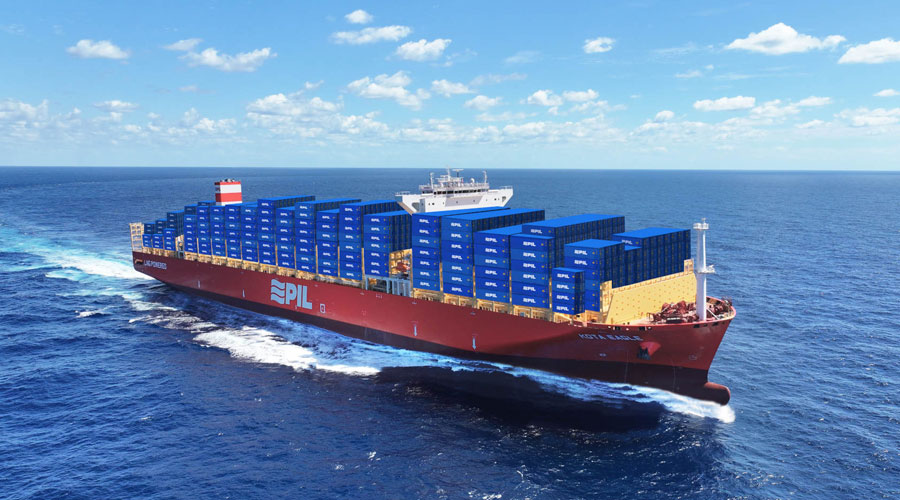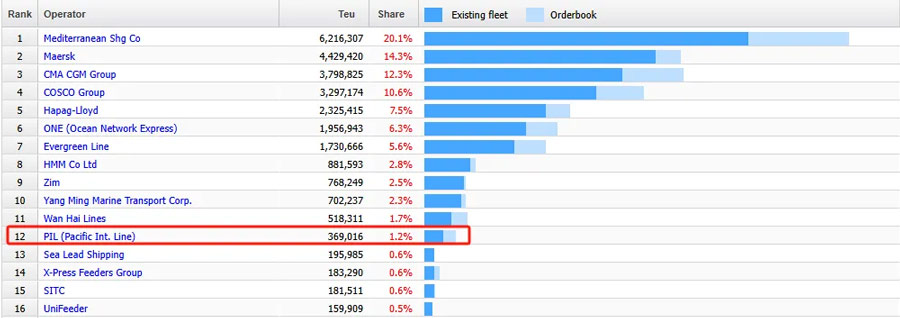


Local shipping company PIL laid off an unspecified number of employees in Singapore on November 13 as it pushes ahead with large-scale automation and artificial intelligence (AI) technology adoption.
A PIL spokesperson said the widespread use of automation technology has impacted PIL's resource requirements, particularly in its shipping agency business. However, the affected employees represent only a small fraction of the company's total workforce in Singapore, and the exact number and jobs were not disclosed. However, PIL confirmed that operations at its Singapore headquarters will not be affected by this reduction and that a relatively small percentage of the total workforce in Singapore will be affected.
PIL said PIL is working with its trade union, the Singapore Supply Chain Employees Union (SCEU), to support the laid-off workers. Affected employees will receive "enhanced" packages, including outplacement services, training grants, expanded medical coverage, and bonus payments expected through 2025.
Meanwhile, PIL has also increased its workforce in Singapore by more than 30% after laying off some of its staff, which comes as PIL adopts AI-driven technology to improve efficiency and global competitiveness.
PIL said the company is working with the Supply Chain Employees Union (SCEU) to support the employees who have been made redundant. SCEU is an affiliated trade union of the National Trades Union Federation of Singapore (NTUC).
SCEU executive secretary Mohd Fahmi Aliman said PIL had informed the unions in advance to ensure they had sufficient time to work with the company to negotiate the redundancy compensation package and provide assistance to the affected employees.
As early as 2022, PIL launched a $2 billion plan to replace part of its fleet with 13 dual-fuel container ships that can run on liquefied natural gas and conventional Marine fuels.
PIL has already taken delivery of the first two vessels in Shanghai in October, which are currently the largest in PIL's fleet with a capacity of 14,000 TEU each. In addition, PIL also ordered another five dual-fuel container ships in early November, which are expected to be delivered between 2027 and 2028, bringing its total new shipbuilding order book since 2022 to 18 vessels.

According to Alphaliner, PIL is the largest shipping company in Southeast Asia and the 12th largest in the world. Founded in 1967. The company was restructured in 2021, with Heliconia Capital Management, a subsidiary of state-owned investment firm Temasek Holdings, acquiring a majority stake in PIL through a US $600 million investment.
The application and transformation of automation and intelligent technology by major ship companies is no secret in the shipping industry. As early as 2023, it was reported that Maersk planned to use artificial intelligence technology to achieve complete unmanned supply chains, in order to optimize the global cargo transportation process and gradually replace human labor.
The development of automation and intelligent technology has also brought a "double trouble" to the shipping industry. On the one hand, the complexity of the maritime and shipping sector is growing at a very rapid rate, so one needs this order of magnitude of efficiency to get anything done, increasing the efficiency and safety of the shipping industry. On the other hand, in order to cope with the performance impact of the market downturn and control costs, shipping companies may choose to reduce staff.





